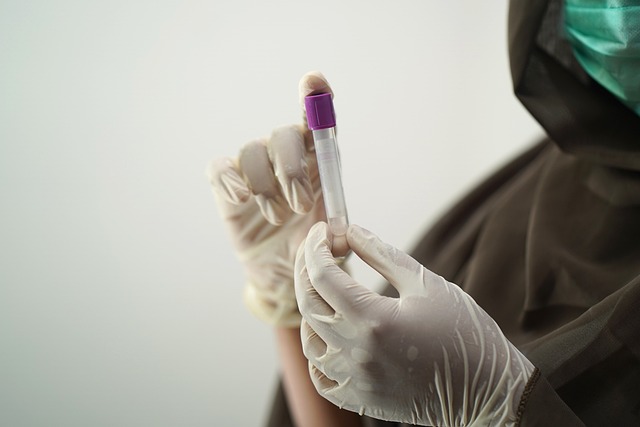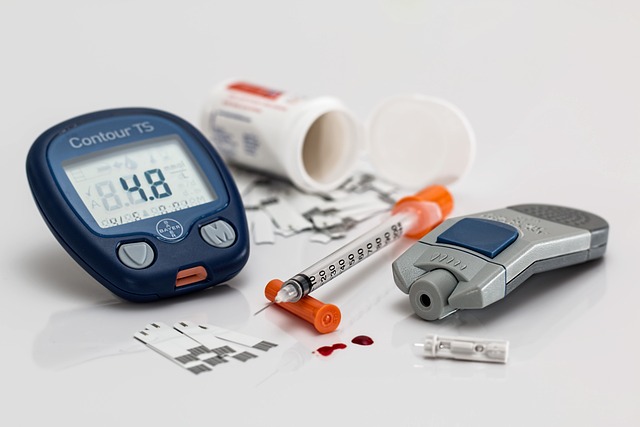The Standard Liver Blood Test UK is an essential diagnostic tool for monitoring cholesterol levels and liver function enzymes, which are critical indicators of cardiovascular health. This test includes the measurement of total cholesterol, HDL cholesterol, LDL cholesterol, and triglycerides to assess an individual's lipid profile. It is part of the NHS's preventive healthcare strategy and is important for detecting early signs of heart disease and stroke risk factors. An ideal total cholesterol level is below 5 mmol/L, HDL cholesterol should be above 1.0 mmol/L for men and 1.2 mmol/L for women, and LDL cholesterol should be less than 3.0 mmol/L. Triglyceride levels below 1.0 mmol/L are optimal. Healthcare providers use these results to guide personalized care plans and interventions. Regular fasting blood tests can help maintain heart health by allowing for early intervention if cholesterol levels are outside the recommended range, necessitating lifestyle changes or medical treatments as needed. The Standard Liver Blood Test UK is a vital component of managing one's cardiovascular risk and overall health.
In the UK, maintaining optimal cholesterol levels is pivotal for cardiovascular health. A critical step in this process is undergoing a standard liver blood test, which provides a comprehensive view of your lipid profile. This article delves into the essentials of cholesterol level testing through blood tests, offering insights into ‘Decoding Your Numbers: The Role of Standard Liver Blood Tests in Cholesterol Management in the UK’. It guides readers through ‘Understanding the Process: A Step-by-Step Guide to Cholesterol Level Testing with Blood Tests in the UK’, ensuring clarity on this health imperative. Furthermore, ‘Interpreting Your Results: What Do Your Cholesterol Levels Say About Your Health?’ helps individuals comprehend their test outcomes and the implications for their well-being. Understanding cholesterol through these tests empowers you to take proactive steps towards heart health.
- Decoding Your Numbers: The Role of Standard Liver Blood Tests in Cholesterol Management in the UK
- Understanding the Process: A Step-by-Step Guide to Cholesterol Level Testing with Blood Tests in the UK
- Interpreting Your Results: What Do Your Cholesterol Levels Say About Your Health?
Decoding Your Numbers: The Role of Standard Liver Blood Tests in Cholesterol Management in the UK

In the United Kingdom, maintaining optimal cholesterol levels is a cornerstone of cardiovascular health. A key tool in this endeavour is the Standard Liver Blood Test UK, which plays a pivotal role in cholesterol management. This test measures various components within the blood, including total cholesterol, high-density lipoprotein (HDL) cholesterol, low-density lipoprotein (LDL) cholesterol, and triglycerides. The liver, as a central hub in metabolic processes, is integral to the regulation of these substances. Elevated levels of total and LDL cholesterol can signal an increased risk for coronary artery disease, making their measurement via the Standard Liver Blood Test UK an essential aspect of preventive healthcare. The test also assesses liver function enzymes, which can indicate potential liver issues that might influence cholesterol metabolism. Understanding the results from this comprehensive blood test empowers both healthcare providers and patients to tailor interventions effectively, whether through lifestyle modifications, dietary changes, or pharmacological therapy, thus safeguarding against the development of cardiovascular diseases.
The interpretation of cholesterol levels in the context of the Standard Liver Blood Test UK is guided by established guidelines that categorise these measurements into risk categories. For instance, an LDL cholesterol level below 3.5 mmol/L is considered desirable for individuals with coronary heart disease or those at high risk, while levels between 1.8 and 3.5 mmol/L are considered borderline-high to high. In contrast, an HDL cholesterol level of 1 mmol/L or higher is beneficial, as it acts as a protective factor against cardiovascular disease. The test results serve as a quantifiable metric for healthcare professionals to assess an individual’s cholesterol profile and risk factors, enabling personalised care plans and effective management of cholesterol levels. Regular monitoring through the Standard Liver Blood Test UK is instrumental in maintaining long-term cardiovascular health, making it a vital component of the National Health Service (NHS) preventive healthcare strategy.
Understanding the Process: A Step-by-Step Guide to Cholesterol Level Testing with Blood Tests in the UK

Understanding cholesterol levels is crucial for maintaining cardiovascular health, and one of the primary methods for doing so involves a simple blood test. In the UK, the Standard Liver Blood Test UK serves as a pivotal diagnostic tool that measures both cholesterol and liver function enzymes. This comprehensive test provides insights into your overall liver health and lipid profile, which includes total cholesterol, high-density lipoprotein (HDL) cholesterol, low-density lipoprotein (LDL) cholesterol, and triglycerides.
The process begins with a healthcare provider taking a blood sample from a vein in your arm, typically after you’ve fasted for at least 8 to 12 hours to get an accurate reading. The sample is then sent to a laboratory where it undergoes analysis. The total cholesterol level is measured in millimoles per litre (mmol/L), with levels over 5.0 mmol/L generally considered high and requiring medical attention. HDL cholesterol, often referred to as “good” cholesterol, should ideally be above 1.0 mmol/L for men and above 1.2 mmol/L for women. LDL cholesterol, known as “bad” cholesterol, should be less than 3.0 mmol/L. Triglycerides are another important component to monitor; levels below 1.0 mmol/L are considered normal and optimal for cardiovascular health. The results from the Standard Liver Blood Test UK provide a comprehensive picture of your lipid profile, enabling you and your healthcare provider to make informed decisions about lifestyle changes or medical interventions that can reduce your risk of heart disease and stroke.
Interpreting Your Results: What Do Your Cholesterol Levels Say About Your Health?

Understanding your cholesterol levels through a blood test is a critical step in assessing your cardiovascular health. A standard liver blood test UK, which includes measuring total cholesterol, high-density lipoprotein (HDL) cholesterol, and triglycerides, provides insight into the lipid profile of an individual. The National Health Service (NHS) in the UK recommends regular checks for cholesterol levels as they can indicate the presence of risk factors associated with heart disease and stroke.
Total cholesterol readings should ideally be under 5 mmol/L, with HDL cholesterol being higher, as it is often referred to as ‘good’ cholesterol because it helps remove other forms of cholesterol from your bloodstream. Low-density lipoprotein (LDL) cholesterol, on the other hand, is considered ‘bad’ cholesterol, as high levels can lead to plaque buildup in arteries, potentially causing blockages and increasing the risk of heart attack or stroke. Triglycerides should also be kept at a healthy level; fasting triglyceride levels less than 1.7 mmol/L are recommended for optimal cardiovascular health. Interpreting these results involves considering your overall lifestyle, dietary habits, family history, and any existing health conditions. If your cholesterol levels fall outside of the healthy range, it may be necessary to adopt dietary changes, engage in regular physical activity, or possibly consider medication under medical supervision. The standard liver blood test UK is a foundational diagnostic tool that empowers individuals to take proactive steps towards maintaining heart health.
In conclusion, regular cholesterol level testing through blood tests is a crucial health measure for individuals in the UK. The Standard Liver Blood Test UK plays an integral role in this process, offering valuable insights into an individual’s overall liver and cholesterol health. By following the step-by-step guide outlined, understanding the process of cholesterol level testing becomes straightforward. Interpreting your results requires knowledge of what these numbers mean for your health. High cholesterol can increase the risk of heart disease and stroke, emphasizing the importance of timely and consistent monitoring. Taking proactive steps to manage cholesterol levels can significantly contribute to maintaining good cardiovascular health. It is advisable to consult healthcare professionals for personalized advice and treatment plans following your blood test results. Regular screening and informed decision-making based on your cholesterol levels are key to a healthier, longer life.
